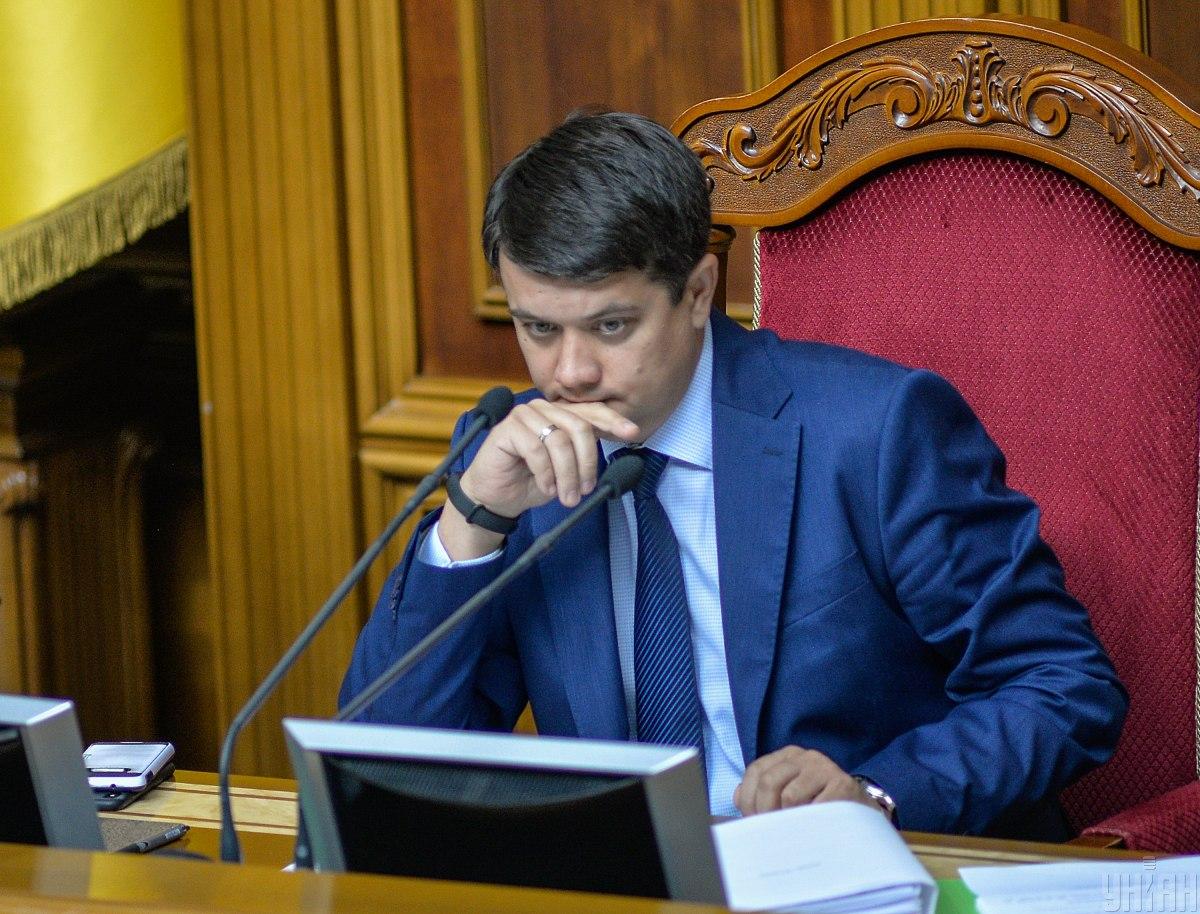
Head of the Verkhovna Rada of Ukraine Dmytro Razumkov (Servant of the People faction) has stated his negative attitude to lustration.
In an interview with RBC Ukraine, Razumkov claimed some "effective" officials were subject to it.
"My attitude towards lustration is quite peculiar: I don't support it. I'll explain why. Lustration covers plenty of people who were effective and who were not objectively stained by scandals," Parliament Speaker said.
Razumkov added that it was not up to him to judge whether these people had a corruption trace behind them, because "law enforcement agencies should be doing this."
"For example, I had people I knew who did not give the impression of malicious corrupt officials of a cosmic scale," the MP added. "If you are a professional, someone with a good reputation who has not acquired mansions during your time in office, if you performed a certain function in a particular position that, among others, fell under lustration, and because of this you were fired, then I don't understand why you need to be disposed of in this way if you can be of service to this country," Razumkov explained.
As UNIAN reported earlier, on July 5, 2019, Razumkov voiced an opposite opinion on lustration: "Attempts by former officials of the 'Yanukovych period' to return to high offices as a result of the possible annulment by court of the law on lustration could destabilize the political situation in Ukraine." At the time, Razumkov was a leader of the pro-presidential Servant of the People Party.
UNIAN memo. European Court of Human Rights on October 17, 2019, published on its website the text of the decision in the case of "Polyakh and Others v. Ukraine" (concerning the dismissal of five civil servants), according to which the lustration of civil servants in Ukraine violated their rights.
The ECHR ruled that with respect to the three applicants, Article 6 §1 (right to a fair trial) of the Convention for the Protection of Human Rights and Fundamental Freedoms was violated due to the lengthy court proceedings in Ukrainian courts and article 8 (right to respect for private and family life) of the same Convention in respect of all five applicants.
At the same time, the Court "did not doubt that in the period when former President Viktor Yanukovych was in power the Ukrainian civil service and democratic governance had indeed faced considerable challenges which justified a need for reform."
Read alsoUkraine's Constitutional Court to continue considering complaint against lustration law
However, the Court found in particular that the GCA was of very broad application and had led to the dismissal of the applicants simply for having worked in the civil service for more than a year while Mr Yanukovych was in power or for having been a Communist Party official before 1991.
The law therefore had no regard to the applicants' individual roles or whether they had been associated with any of the undemocratic acts which had taken place under the former president. In that context, Ukraine's Government Cleansing Act differed from more narrowly targeted lustration programs put in place in other Central and Eastern European States.
According to the court, Ukraine must pay each applicant EUR 5,000 in respect of non-pecuniary damage. In addition, the court ruled that the first applicant should receive EUR 1,500 and the rest should receive EUR 300 each in respect of costs and expenses.
The lustration law came into force on October 16, 2014. It applies to persons who served as top officials for at least one year, from February 25, 2010, to February 22, 2014, and government officials who held positions from November 21, 2013, to February 22, 2014, without resigning from their posts. These persons shall not be able to work in government agencies for the next 10 years, the law says. The Constitutional Court considered the case on constitutionality of a number of provisions of lustration law according to the motions of the Supreme Court of Ukraine and a group of 47 lawmakers. Two motions of the Supreme Court and one motion of 47 lawmakers were combined into one constitutional proceeding.

